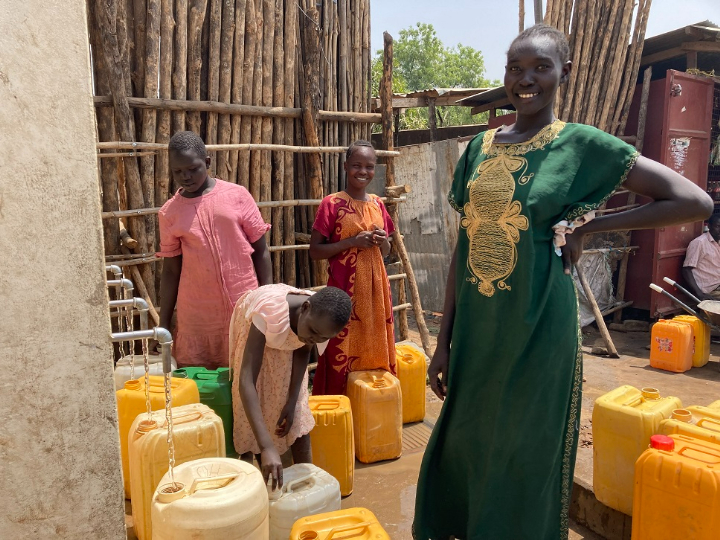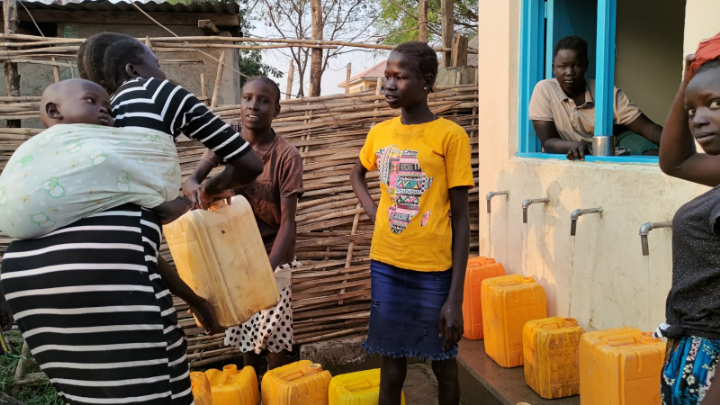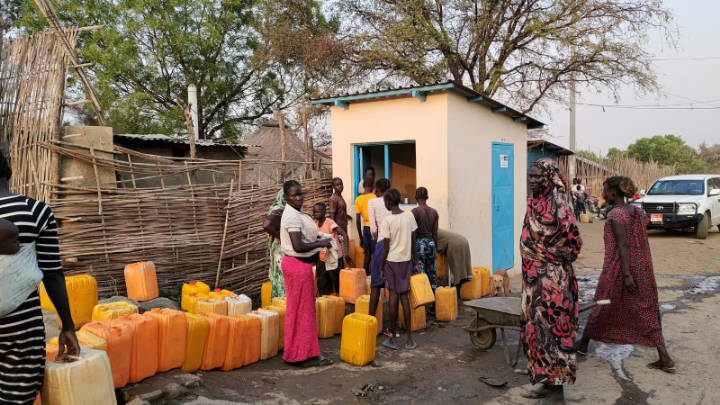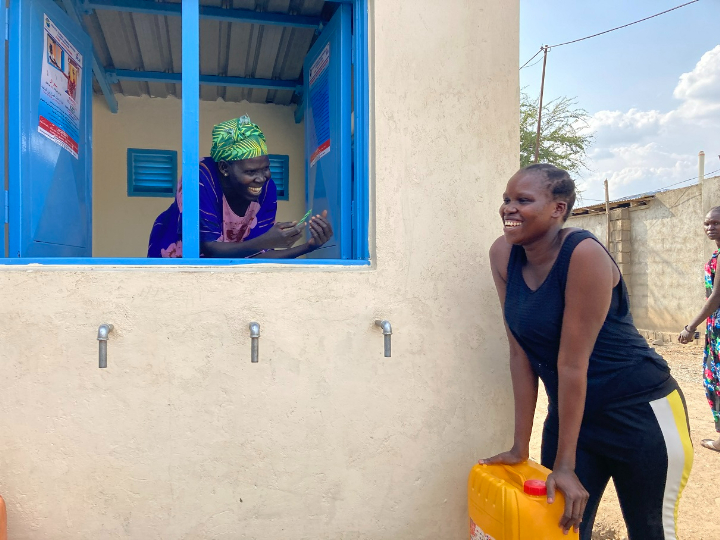Clean Water as Foundation for Peace: New Water Supply System Changes More Lives in Juba, South Sudan
2023.04.12
At the end of January 2023, a water treatment system newly constructed with the cooperation of JICA was completed in Juba, the capital of South Sudan. Just over two months have passed since the plant began supplying water to the citizens. Approximately 400,000 Juba residents now have access to affordable, clean water through newly installed public taps and other means.

The new water treatment plant has the capacity to purify 10,800 cubic meters of Nile River water every day. Citizens can purchase water at 120 newly constructed public taps and eight water tanker stations in the city. An estimated 400,000 citizens now have access to clean and safe water, more than 10 times the number compared to that before the water treatment plant was completed.
Citizens bring 20-liter yellow polyethylene tanks, called jerry cans, to draw water from public taps, with each tank costing 25 SSP (South Sudanese pounds). At less than half the price of the water sold by existing water purification facilities, citizens welcome the availability of cheap, clean water close at hand. The plant is also expected to reduce outbreaks of infectious diseases caused by poorly purified water. Mr. Yamanaka Yoshifumi of JICA's South Sudan office said, referring to the plant’s impact on the lives of the citizens, "The water is so clean that you can drink directly from the taps. Until now, mothers and other women spent an hour in the middle of each night boiling water to make it safe for the next day's use, but now they will be freed from this custom and will be able to use their time more effectively."
Currently, the water treatment plant is in full operation, but due to its popularity, the water continues to sell out in the morning. The public taps are open from 6:00 a.m., but citizens begin arriving in quick succession to purchase water as soon as it is available, and by 10:00 a.m., the reservoir tank is empty. After the tank is refilled, sales resume around 2:00 p.m. and remain open until 6:00 p.m. In order to meet the ever-increasing demand, considerations are underway for future development of water supply facilities in other areas of Juba City that do not have public water taps.


Citizens come with yellow polyethylene "jerry cans" in hand to purchase water at public taps. It's so popular that lines of people form, waiting for their turn.
Construction of the water purification plant started in 2013, right after South Sudan gained its independence, but it took over 10 years to complete due to two domestic conflicts and interruptions caused by the COVID-19 pandemic. Having the government provide the social services that citizens desire could help to establish trust between citizens and the government, create a social environment in which citizens can participate actively, and reduce the likelihood of conflicts. A sustainable supply of clean water is thus crucial to laying the foundation for peace in South Sudan.

scroll